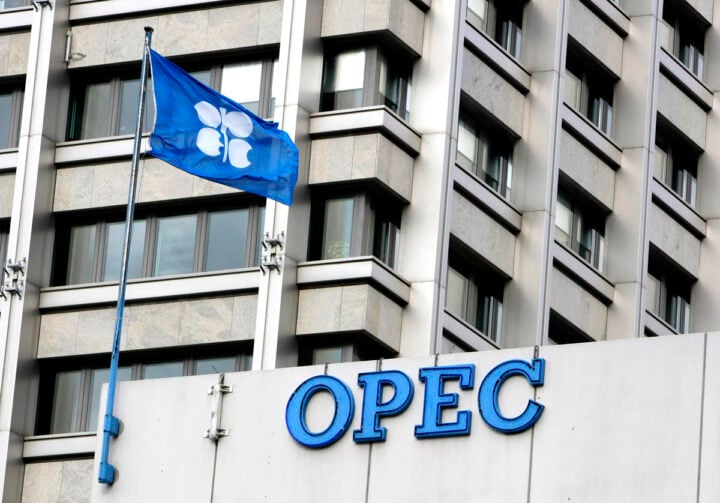The Organisation of Petroleum Exporting Countries (OPEC) says taxes imposed by major oil-consuming countries are the primary driver of increased fuel costs.
In a statement on Tuesday, Haitham Al Ghais, secretary-general of OPEC, said a common narrative is that every increase in crude price raises costs of petrol, diesel and other petroleum products, to the detriment of consumers.
“This narrative can lead to finger-pointing and pit consumers against producers, rather than acknowledge that all are stakeholders in the energy industry, with legitimate needs and concerns. Furthermore, this narrative does not tally with the facts,” he said.
“It is important to recognize that the price paid by consumers at the pump is determined by a number of factors: the price of crude oil, refining, transportation and marketing costs, oil company margins and taxes. Breaking this down provides some enlightening insights and figures.”
Advertisement
He said revenue can be generated, but analysis shows that major oil-consuming countries primarily earn it through taxation.
For example, Al Ghais said the Organisation for Economic Cooperation and Development (OECD) earn far more revenue from the retail sale of petroleum products than OPEC countries make from the original sale of their oil.
“From 2019 to 2023, OECD economies earned on average about $1.915 trillion/year more (based on weighted average prices) from retail sales of petroleum products than OPEC Member Countries made from oil revenues. A significant amount of the final retail prices of petroleum products is attributed to taxation,” he said.
Advertisement
“In fact, during 2023, the OECD average share of total tax on the final retail price increased year-on-year and amounted to approximately 44%, and for some countries, it was even more.
“Across the year, in several European countries, taxes represented more than 50% of the final retail price.”
‘TAXATION IS A MORE SIGNIFICANT FACTOR FOR FUEL PRICE’
Al Ghais said taxation can be a more significant factor than the original price for crude oil, in feeling any pinch in consumers’ pockets at the pump.
Advertisement
“For consuming countries’ governments, this revenue is generally pure windfall, which will continue to be received from the sale of petroleum products in their territories,” he said.
“For producing countries, on the other hand, a huge portion of their own take is reinvested into the sector for exploration, production and transportation projects, in order to be able to continuously satisfy the world’s oil needs.
“In other words, producing countries, often with social, economic, infrastructural and other challenges, do not have the liberty to spend all their revenues on these and other needs, as they have to re-invest part of their take in the industry, in order to secure current and future supplies to consumers.
“It is obviously a sovereign right for countries and governments to develop their own taxation systems, but when there is talk of concerns about the effect of high pump prices on the disposable income of populations, it is important to remember how much of this is from taxes flowing to finance ministries around the world.”
Advertisement
According to Al Ghais, the taxation levels underscore the revenue-generating potential of crude oil and petroleum products recognised by producers and consumers alike.
“Furthermore, governments from producers and consumers use these revenues to invest in public services, delivering for their people. The idea of pitting consumers against producers is at a minimum, distorting the reality that more unites both groups than divides them,” he said
Advertisement
“On a final note, some governments simultaneously seek to utilize the revenue-generating potential of petroleum, while seeking to phase out oil, alongside subsidizing other energies.”
Al Ghais said the countries should consider how they will replace the revenues lost from taxation on oil while planning to phase out crude oil.
Advertisement
Add a comment









